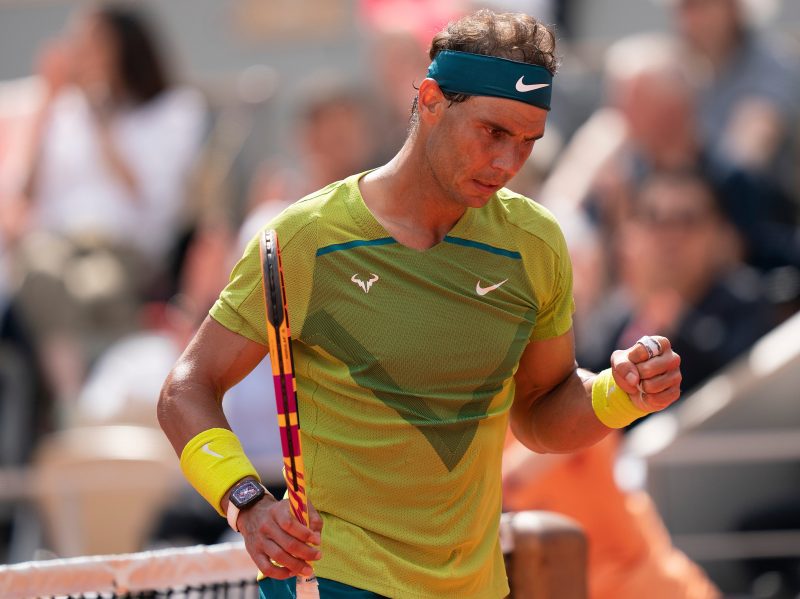We will never know all the ways Rafael Nadal had to stretch and massage and manipulate his body, how much pain medication he had to take and how much torture he had to endure to make the Vamos magic happen this long.
He didn’t always like to talk about those details, especially in the heat of competition. With Nadal, there were no excuses, no gray areas. You either got it done or you didn’t. You either suffered or you failed. And no matter the result, you always remained grateful if you got the chance to try again.
But a couple years ago, we got some idea about the lengths he was willing to go just to squeeze a little more competitive juice out of his broken body.
After winning the 2022 French Open – the tournament that would be his 22nd and final Grand Slam title – Nadal revealed that his chronic left foot condition had gotten so bad that the only way he could play was a series of injections that essentially put the foot to sleep for two weeks.
Asked how many shots it took to get him on the court, Nadal deadpanned: ‘It’s better you don’t know.’
Nadal, 38, announced Thursday that the end of his professional tennis career will take place next month after one more time playing for Spain in the Davis Cup.
The choice of this event is deeply symbolic. In the 2004 Davis Cup final, with Nadal having just one minor ATP title on his résumé, he upset No. 2 Andy Roddick to lead Spain over the Americans. As Roddick wrote Thursday on X, ‘I knew tennis earth was in a lot of trouble.’
There was a lot of trouble – more than anyone could have imagined. He owned the clay, winning a mind-bending 14 Roland Garros titles. He adapted his game to finally conquer grass, beating his great rival Roger Federer in the 2008 Wimbledon final that many experts consider the best match ever played. He thrived on the energy of New York, winning four US Open titles. And in Australia, where he suffered so many close calls, heartbreaks and injuries, his second title there in 2022 – coming from two sets down to beat Daniil Medvedev in the final – stands as one of the sport’s all-time marvels.
Not bad for a guy who was diagnosed with Muller-Weiss syndrome – essentially an arthritic foot condition – back in 2005. Not bad for a guy with bad knees, a back problem, hip issues and rib cage tears. Not bad for a guy who played such a bruising, physical, never-say-die style that his colleagues wondered whether his body could last a decade in the sport.
Every time, Nadal kept battling back, kept pushing his limits, kept winning titles.
But eventually it was too much. Though it’s sad to see a sporting icon and all-time great say goodbye, nobody who has paid attention for the last two years can feel bad about this decision.
If anything, it’s relief. There is no need to suffer anymore for the sake of this sport. He’s done enough.
Ever since that last French Open title, it hasn’t been the same. Nadal made the Wimbledon semifinals a few weeks later but had to withdraw after suffering a large abdominal tear in a five-set quarterfinal win over Taylor Fritz. Every attempt to play after that, sadly, seemed worse than the last.
Though Nadal kept trying to come back and stave off retirement talk, there was little progress. Even at this year’s Olympics, which Nadal desperately wanted to try and win one last medal in Paris, he was barely competitive. The message his body sent him was unmistakeable. It was time.
Nadal’s exit from the sport means that Novak Djokovic is the last of tennis’ Big Four standing. Federer has been gone for a couple years now. An injury-ravaged Murray was forced to say goodbye at the Olympics. And Djokovic, who is playing fewer and fewer tournaments and failed to win a major this year, probably isn’t too far behind.
It’s the end of an amazing era, but as Nadal said in his goodbye video message, everything has a beginning and end.
He did it all. He did enough. Suficiente.
(This story was updated because an earlier version included an inaccuracy.)
